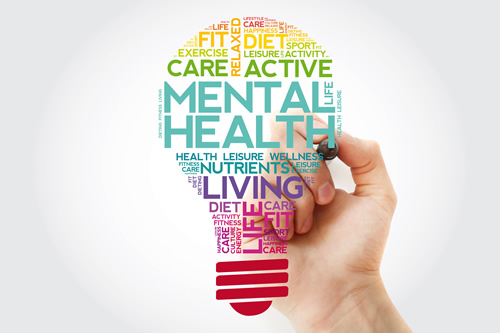
How colleges have been helping students deal with Mental Health?
With so much of focus and upliftment on social-emotional learning, student well-being at K-12 classes, and trauma-sensitive classrooms, we are hardly giving any attention to our young adults of the society in this complicated arena. The question here is that why are we ignoring the mental health and well-being of college students?
Universities have witnessed a rise in the number of cases of mental health and support, and we need to find out how are they actually addressing such issues in universities and colleges?
Increased awareness sessions at universities
At some point of time, we might witness colleges addressing orientation sessions on drug and alcohol abuse, anger management, sexual violence prevention and other student health topics at the campus. So, why aren’t they actually looking into the matter of mental health with such session approaches? Though many of them have started to proactively share the information related to mental health with students, during a face-to-face orientation session. But still, not all of them can be counted for the same.
The ones actually putting in efforts for reaching students regarding their mental health, focus on approaches like panel discussions, short videos, small group discussions, role-plays and traditional presentations. Here, the students are taught to recognize the early symptoms of mental illness, the right source of treatment and support, and how can they eventually talk to their friends struggling to survive with some mental trauma.
In many cases, the storytelling concept resonated with the student audience more because somehow they could relate to it personally and the details shared along with it. So it becomes crucial for the universities to present the mental health information in a manner that is quite relevant and memorable among students. This might also help the ones struggling with it to feel less isolated amongst the rest. Because of the stigma attached to the mental health scenario that still pertains in the society, it becomes equally important for the universities to primarily focus on such stories and open conversations that normalize the critical concerns of mental health cases.
Another way that can help universities counter the stigma associated with mental health is to help encourage students monitor their mental health the same way they monitor their physical health. So, in order to put an end to this long associated stigma, many universities today are offering free mental health check-ups at their campuses, and also readily accessible screenings to increase awareness among students. At the end of every screening session, students receive important information regarding mental health resources and supports.
Campus-wide short courses, programs and other initiatives
There are many programs initiated by the universities that help students to better understand their emotions they are experiencing during the time of mental sickness, connect with some clinician who can actually supervise their progress and terms of treatment, and take free self-help courses available online.
In the wake of shortage of mental health providers and clinicians on campuses, and other online resources and programmatic events, there seems to be an essential need for such courses and programs in the universities. However, many students at colleges still prefer to share their experiences on a face-to-face platform.
If nothing else works, simply talk about it
Despite of all the resources available on the campus, there are still some students who aren’t that verbal in vocalizing their mental health struggles to clinicians. And many of you might not be aware of how you could actually help your peers come out of the situation of loneliness, despair and distant sadness. So how do we begin with the conversation?
Many universities across the globe have initiated online simulation programs for students that can help them learn how to talk to their friends who might be suffering emotionally, or going through some severe social trauma. With the help of such online simulation programs, students tend to learn more about their mental health from a handful of virtual students. This approach merely explains the scenario that students respond well to their virtual peers for mental health support. So comes the part of texting, which is quite supportive in nature. The main aim here is to provide college students with options that are worried about their friends, overwhelmed with the stress of academics, or are feeling lonely or depressed.
At times, these mental health struggles might make students feel daunting in front of their own classmates, but there are so many options and opportunities that can offer support to them, not just in the campus arena but also outside, in the real world. Whenever you find a friend of yours in such struggle, try being their health advocates for some time, talk to them more openly about their mental health situations and other emotional things. Ensure their well-being by inculcating efforts that might keep them busy with their daily chores and forces them to keep away from all those negative thoughts that intimidate with their peace at school or college.








